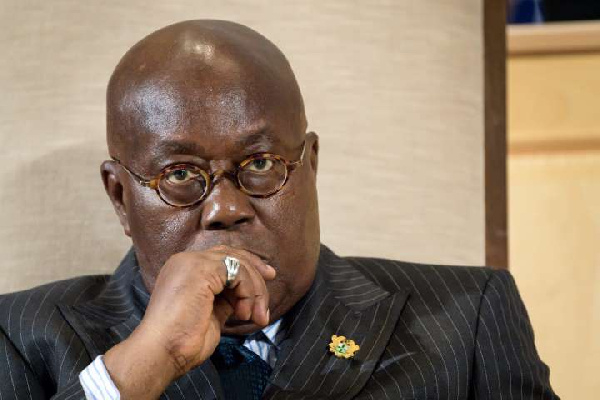From what has been reported, the total bailout money Ghana expects to receive from the IMF is US$3 billion. At the current exchange rate, that’s just over GH₵24 billion.
Let’s put this in context, so Ghanaians understand that the IMF program is not the silver bullet to provide long-term solutions to Ghana’s economic problems if we don’t take serious immediate steps to change the economic foundation of the country.
From the 2022 budget, interest payments in 2022 alone is GH₵37.4 billion. The three-and-a-half-year Ghana CARES (Obaatampa) program, which was supposed to alleviate the effect of COVID-19 on businesses and return the economy on a sustained path of growth, has a price tag of GH₵100 billion.
The IMF program may force the government to be disciplined in terms of expenditure and debt sustainability. But, if the government doesn’t think really hard about supporting the real productive sector of the economy and keeps hiding behind macroeconomic stability and macroeconomic indicators, the weak foundation of the economy will be exposed again and again, even after the IMF program.
I mean, if the economy remains import-dependent after the IMF program, nothing will change for the country.
Do you know, for example, that for quite a long time over 65% of Ghana’s poultry imports came from the United States of America? And “despite decreasing imports between 2014 and 2016, supplies from the United States capture over 40 per cent of market share” (https://www.rvo.nl/sites/default/files/2019/12/Update-poultry-report-ghana-2019.pdf).
While the USA’s share of the market continues to decrease, the IMF has no interest in recommending a program to support self-sustaining local poultry production that will cut our poultry imports from the USA, Netherlands, Poland and Brazil. Actually, the IMF would rather give us a loan so we can have the Dollars to pay for our poultry imports.
If as a country we don’t take our destiny into our own hands and take charge of our productive sector and industrialization, and we get fixated on implementing economic models that deny the private sector access to cheaper funds for investment, then we are forever doomed.
Just think about it: If the BoG raises T-Bill rate to 27%, which commercial bank will take the risk of lending to the private sector to produce chicken, when the finance cost alone will not make the final product competitive against chicken imported from the USA, Netherlands, Poland and Brazil, where farmers in some instances get finance at less than 2%?
And if T-Bill rate is 27%, at what rate would a commercial bank offer credit to the private sector? Even if the banks would lend to the private sector under these conditions, they would demand significant collateral security even if they charge 32% interest, to bring the risk closer to the risk-free T-Bill.
Do you remember those days when Ghanaian banks used to declare huge annual profits, more from T-Bills than lending to the private sector?
The Bank of Ghana’s copy and paste model to fight inflation, by raising the policy rate which in turn has raised the cost of borrowing to the private sector, will keep the economy forever import-dependent! The US$3 billion IMF program won’t change the economy’s import dependency.
The BoG, on the other hand, can use quantitative easing to finance the GH₵100 billion Ghana CARES (Obaatampa) program 100% and it won’t lead to inflation!
Yes, the IMF would insist that BoG should not provide monetary financing to government, warning that “further monetary financing could undermine the financial autonomy of the central bank”. Their usual economic model would say that doing so would lead to inflation.
Yet, even the IMF admitted in Paragraph 43 of the 2021 Article IV Consultation document that the GH₵10 billion that the BoG provided to government did not lead to inflation. According to the IMF, “Exceptional BOG lending to government in 2020 had little impact on inflation, but further monetary financing could undermine the financial autonomy of the central bank.”
The question is, if the GH₵10 billion given to support government expenditure had “little impact on inflation”, how do you worry that giving GH₵100 billion to directly support the productive sector to implement the Ghana CARES program, a program that could make the economy less dependent on imports, would lead to inflation?
Right there in their own Article IV Consultation document is evidence enough to back those of us calling for the BoG to use quantitative easing to support Ghana’s industrialization by providing cheap funds, through the Development Bank, for local Cedi-denominated inputs in the productive sector.
By the way, did the IMF oppose quantitative easing that the US and other countries used to recover their economies following the 2007/2008 global financial crisis?
Kwaku Antwi-Boasiako, Accra.
Latest Stories
-
Shamima Muslim urges youth to lead Ghana’s renewal at 18Plus4NDC anniversary
33 minutes -
Akufo-Addo condemns post-election violence, blames NDC
41 minutes -
DAMC, Free Food Company, to distribute 10,000 packs of food to street kids
2 hours -
Kwame Boafo Akuffo: Court ruling on re-collation flawed
2 hours -
Samuel Yaw Adusei: The strategist behind NDC’s electoral security in Ashanti region
2 hours -
I’m confident posterity will judge my performance well – Akufo-Addo
3 hours -
Syria’s minorities seek security as country charts new future
3 hours -
Prof. Nana Aba Appiah Amfo re-appointed as Vice-Chancellor of the University of Ghana
3 hours -
German police probe market attack security and warnings
3 hours -
Grief and anger in Magdeburg after Christmas market attack
3 hours -
Baltasar Coin becomes first Ghanaian meme coin to hit DEX Screener at $100K market cap
4 hours -
EC blames re-collation of disputed results on widespread lawlessness by party supporters
4 hours -
Top 20 Ghanaian songs released in 2024
5 hours -
Beating Messi’s Inter Miami to MLS Cup feels amazing – Joseph Paintsil
5 hours -
NDC administration will reverse all ‘last-minute’ gov’t employee promotions – Asiedu Nketiah
5 hours

